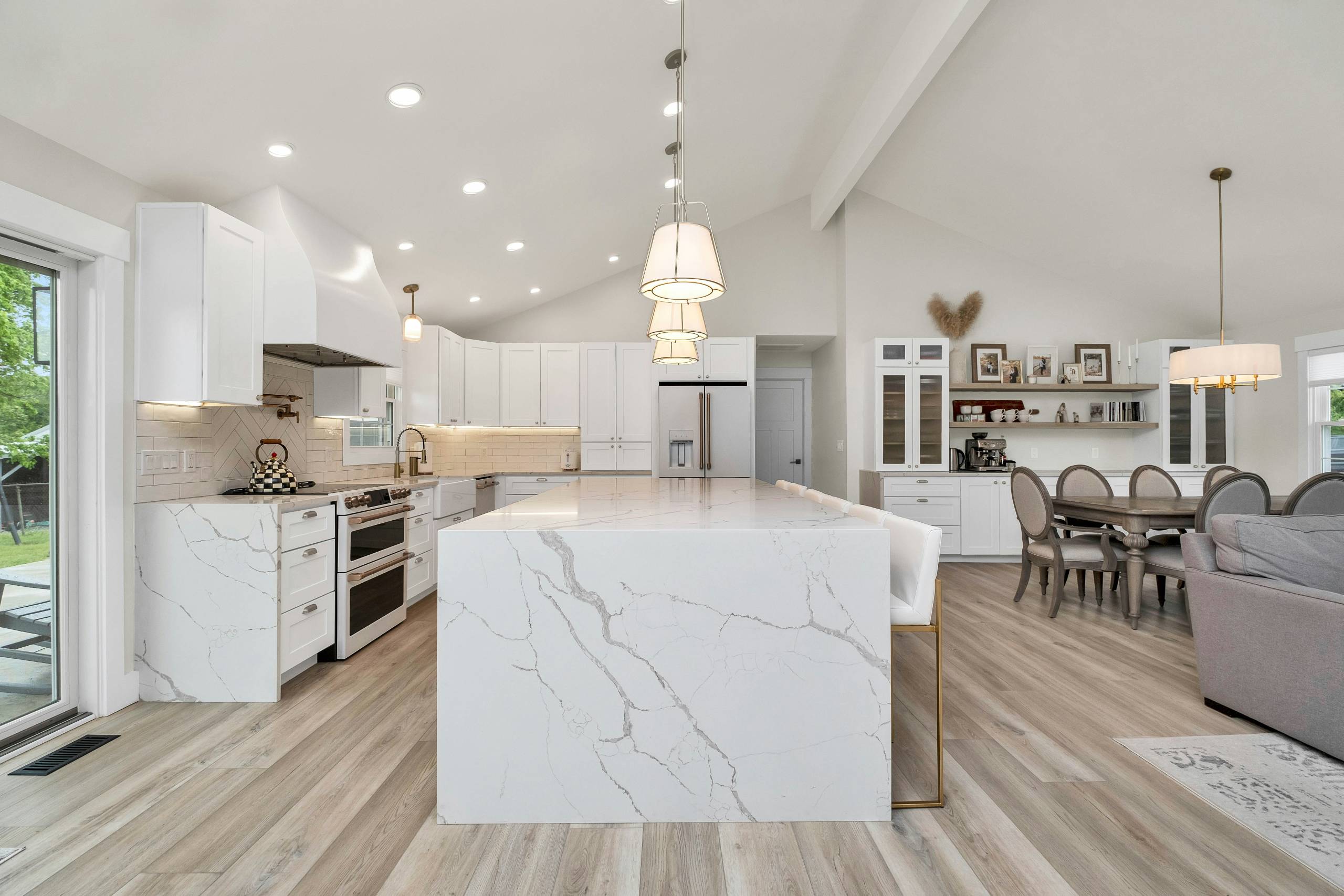When it comes to selecting the perfect countertop material for your home or business, durability is often a top priority. At Unity Flooring & Interiors in Fort Myers, FL, we understand the importance of choosing a countertop that not only looks stunning but also stands the test of time. Two popular options that frequently come up in discussions are quartz and granite. Both are highly regarded for their beauty and resilience, but which one is more durable? Let’s delve into the details to help you make an informed decision.
Quartz Countertops: Engineered for Durability
Quartz countertops are engineered stone surfaces, made from a combination of natural quartz crystals and resin. This manufacturing process creates a non-porous, stain-resistant surface that is incredibly hard and durable. Quartz is resistant to scratches, chips, and cracks, making it an excellent choice for high-traffic areas. Additionally, its non-porous nature means it’s highly resistant to bacterial growth and doesn’t require sealing, unlike natural stone options.
One of the standout features of quartz is its consistency in color and pattern, thanks to the controlled manufacturing process. This consistency can be particularly appealing for those seeking a uniform look across their countertops. However, it’s worth noting that while quartz is heat resistant, it’s not heatproof. Direct exposure to high temperatures can potentially damage the surface, so it’s advisable to use trivets or hot pads to protect your quartz countertops.
Granite Countertops: Natural Beauty and Strength
Granite, on the other hand, is a natural stone that has been used for centuries in various architectural and interior design applications. Its unique patterns and colors, formed by the cooling and solidification of molten rock, make each slab one-of-a-kind. Granite is known for its hardness and resistance to scratches, making it a popular choice for kitchen countertops.
However, granite is a porous material, which means it can absorb liquids and stains if not properly sealed. Regular sealing is required to maintain its resistance to staining and bacterial growth. Additionally, while granite is heat resistant, it’s still advisable to use protective measures when placing hot items on the surface to prevent any potential damage.
Durability Comparison: Quartz vs. Granite
When comparing the durability of quartz and granite countertops, both materials have their advantages. Quartz’s engineered nature provides a more consistent and uniform appearance, along with superior resistance to stains and bacteria due to its non-porous surface. Its high scratch and chip resistance make it a practical choice for busy kitchens and commercial spaces.
Granite, while requiring more maintenance in terms of sealing, offers natural beauty and uniqueness that many homeowners and designers find appealing. Its resistance to heat and scratches makes it a durable option, but it may be more susceptible to staining if not properly cared for.
Choosing the Right Countertop for Your Needs
Both quartz and granite countertops offer impressive durability, but they each have their own set of characteristics that may make one more suitable for your needs than the other. If you prioritize low maintenance and a uniform appearance, quartz might be the ideal choice for you. On the other hand, if you’re drawn to the natural beauty and uniqueness of stone, and don’t mind the extra care required, granite could be the perfect fit.
At Unity Flooring & Interiors in Fort Myers, FL, we’re committed to helping you find the best countertop material that meets your aesthetic preferences, lifestyle, and durability requirements. Visit us today to explore our wide selection of quartz and granite countertops and discover the perfect addition to your space.


